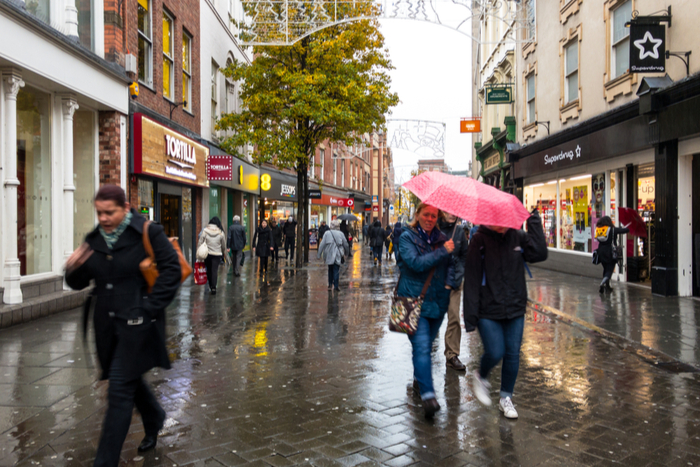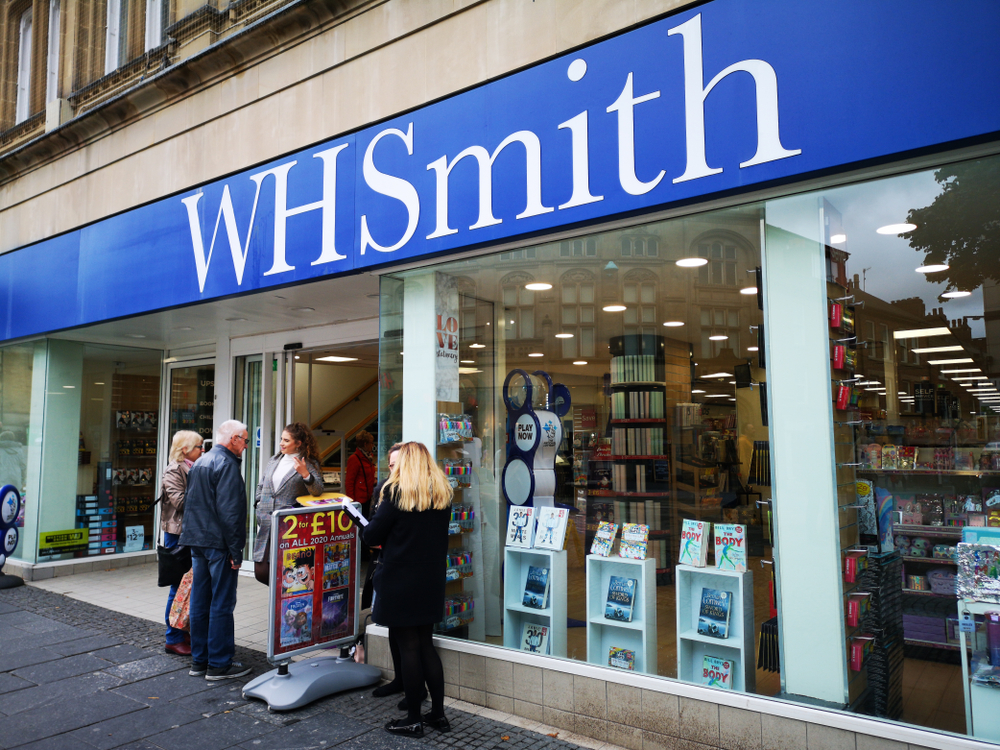// Q3 saw retail health recover 6 points with a score climbing back to 67, thanks to the release of pent-up demand
// This compares to the Q2 score of 61, the all-time low
// Think tank predicts health will improve another point in Q4, but with a renewed disparity between food & non-food retail
The general health of the UK’s retail industry improved in the third quarter of the year as pent up consumer demand saw it bounce back from the record-low second quarter.
According to the latest assessment from the KPMG/Ipsos Retail Think Tank (RTT), retail health saw a qualified recovery between July to September compared to April to June.
The RTT’s Retail Health Index – a quantitative and qualitative assessment of demand, margin and cost – rose by six points, bringing it to 67.
READ MORE:
- The general health of UK retail is at all-time low
- Pandemic causes a record 11,000 shops to close in 2020
- BRC – KPMG Sales Monitor: September retail sales up 6.1%
This follows on the back of the sharp dive in the index by 10 points the quarter before, during which the UK endured a nationwide lockdown and the index score came in at an all-time low score of 61.
With the latest BRC-KPMG Retail Sales Monitor showing total sales up 5.6 per cent in September, the RTT agreed that the retail sector made an “impressive bounce back” as the easing of lockdown restrictions caused pent-up demand to be released.
The RTT said the bounce in the third quarter was twice as great as predicted in July.
A strong recovery in demand was the main driver of better health in the third quarter, but the RTT agreed that a reduction in costs had also contributed significantly.
However, the think tank acknowledged that the cost reductions were partly a function of deferral, thanks to the furlough scheme, rental holidays and movement away from quarterly payments and business rates relief.
The RTT added that hike in costs resulting from the accelerated investment in online activities in the second quarter were not considered to be a further drain to retail health in the third quarter.
Meanwhile, margins were found to be well managed and under control and had no impact overall on the state of retail health, and promotions on average were considered to be no deeper or wider ranging than the second quarter and were “not a cause of undue alarm”.
“The last quarter saw an impressive rebound in retail sales, with consumer spending increasing significantly,” said Paul Martin, KPMG head of UK retail and RTT member.
“Pent-up demand created by lockdown restrictions, along with the mini housing- and working-from-home boom have been major factors in the quarter’s growth.
“Online sales have continued to grow and so fashion retailers have had to work hard to encourage shoppers y through the doors of their stores.
“Relief from government schemes and landlords have outweighed increased operational costs over the last quarter, and this has been a major contributor to retail health.
“That said, the overall health index for this quarter is still far lower than all previous years, so we cannot ignore the fact that consumer confidence remains low.”
Looking ahead, the RTT thinks UK retail health would grow by one point in the current and final quarter, although it would still end the year down five points on its level before the pandemic struck.
With pent-up demand having run its course, the RTT also predicted that consumer spending would be more in line with household incomes compared to the third quarter, and so demand is anticipated to have a small positive impact on health.
While much of the population will still have the same consumer power as before lockdown, pay cuts, job losses and the move to the Job Support Scheme are likely to have a larger impact on the health of non-food retail.
The RTT added that consumer confidence may also be knocked by the threat of a second nation-wide lockdown, and a no deal Brexit.
Taking this into account, the RTT predicted that some retail sectors wee going to have a difficult period over the coming quarter, especially as cities will continue to see a footfall decline of up to 50 per cent.
“Following the bounce in retail health in Q3, the next quarter could paint a very different picture, largely propped up by a growth in food and drink sales in the run up to Christmas,” said Dr Tim Denison, Ipsos retail intelligence director and RTT member.
“However, there are serious questions about how the grocery sector may cope with the usual last-minute surge to supermarkets.
“Also, online delivery will be at a premium due to the need for safe distancing in warehouses and fulfilment centres.
“Of course, everything can change in an instant if further restriction measures are needed to contain the virus.”
Click here to sign up to Retail Gazette‘s free daily email newsletter

















